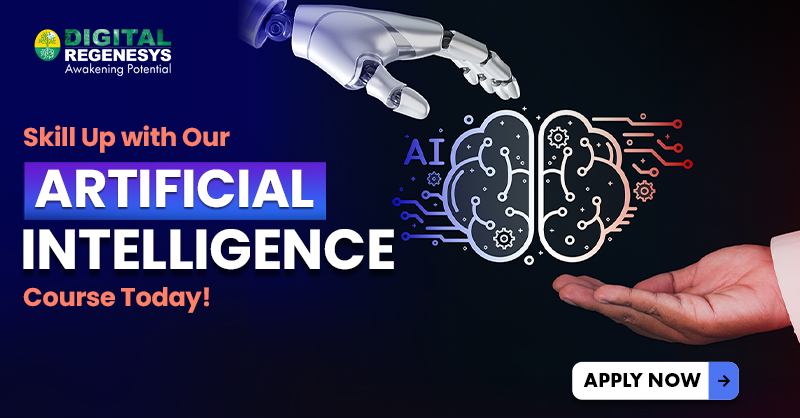Exploring Deep Learning in Online AI Short Courses

Artificial Intelligence (AI) has become one of the most in-demand skills in today’s job market, and deep learning is a key part of it. However, many learners feel confused about how deep learning fits within AI short courses. Is it a separate subject, or is it a part of AI training? Online AI short courses are designed to give learners an overall understanding of artificial intelligence, and within these, deep learning is usually taught as an important module. This helps students grasp how machines can “learn” from vast amounts of data using neural networks and advanced algorithms.
In this article, we will explore how deep learning is introduced as a module in online AI short courses and how it prepares learners for careers in technology and data-driven industries.
What is Deep Learning?
When people hear the term deep learning, they often think it is just another word for machine learning. While they are related, there is a difference. Machine learning involves teaching computers to make decisions based on data, but deep learning takes this further. It utilises artificial neural networks, mathematical models inspired by the human brain, to process information across multiple layers.
For example, if a machine learning model can identify whether an email is spam or not, a deep learning model can go further by detecting speech, recognising images, or even generating text. This ability to process complex patterns in vast datasets is what makes deep learning so powerful.
The following are the core features of deep learning:
- Layered Structure: Deep learning models employ multiple “layers” of algorithms to refine data understanding incrementally, much like the brain processes information.
- Large Data Requirement: These models thrive when given massive amounts of data, which is why they are used in fields like healthcare, finance, and e-commerce.
- Automation of Feature Extraction: Unlike traditional models, deep learning reduces the need for manual coding by automatically identifying key data features.

Why Pursue Deep Learning?
Many learners ask why they should focus on deep learning when AI already covers many of the same concepts. The simple reason is that deep learning is at the heart of most advanced AI applications today. From self-driving cars to voice assistants, it powers the technology we use daily.
The following are some reasons why learning deep learning is valuable:
- Industry Relevance: Businesses rely on deep learning for tasks like fraud detection, medical diagnosis, and customer service automation.
- Career Opportunities: Professionals with in-depth knowledge of deep learning are highly sought after for roles such as AI Engineer, Data Scientist, and Machine Learning Specialist.
- Problem-Solving Power: Deep learning equips you with the ability to handle real-world challenges, from analysing medical scans to predicting consumer trends.
By learning deep learning, you not only strengthen your AI knowledge but also open the door to high-demand career paths.
Online AI Short Courses: An Accessible Option
Many people assume that learning AI or deep learning requires a university degree or years of research. This is not true. Online AI short courses make it possible for students, working professionals, and career switchers to learn these skills in a flexible and affordable way.
Here are some reasons online AI short courses are so popular:
- Flexibility: You can learn at your own pace and fit studies around your work schedule.
- Affordability: Short courses often cost less than full-degree programmes, making them more accessible to a broader range of learners.
- Practical Learning: Many courses are designed with real-world projects and case studies so that you can apply your knowledge immediately.
These courses are beneficial for individuals seeking to acquire hands-on skills without committing to years of full-time study.
Also, read on What Beginners Need to Know About the Best Artificial Intelligence Course? here!
Deep Learning as a Module in AI Short Courses
This is where much of the confusion arises. Learners often think AI short courses are entirely focused on deep learning. In reality, deep learning is a module within a broader AI curriculum. AI short courses typically include topics such as machine learning, data science, natural language processing, and AI ethics. Deep learning is taught as one of these core components.
The following are common topics covered in the deep learning module of AI short courses:
- Neural Networks and Architectures: Learners explore the basics of artificial neural networks and how layers interact to process information.
- Convolutional Neural Networks (CNNs): These are widely used for image recognition and computer vision tasks.
- Recurrent Neural Networks (RNNs) and Transformers: Useful for tasks such as language translation and text analysis.
- Training and Optimisation: This includes gradient descent, overfitting, and regularisation techniques.
- Case Studies and Applications: Practical examples from industries such as healthcare, finance, and retail.
By placing deep learning as a module, these courses ensure learners understand the broader picture of AI while gaining advanced skills in one of its most impactful areas.
Skills You Gain from AI Short Courses
Online AI short courses that include a deep learning module are designed to build both technical and practical skills. These skills are not limited to coding, but also extend to analytical and professional capabilities.
Here are the main skills you can expect to gain:
- Technical Skills: You will learn to build and train neural networks using Python libraries such as TensorFlow and PyTorch.
- Analytical Skills: You will develop problem-solving abilities, particularly in handling complex datasets and identifying patterns.
- Professional Skills: You will learn how to apply AI and deep learning in real-world settings, whether in research, business, or technology development.
These skills not only improve employability but also prepare learners to adapt to emerging technologies in the workplace.
Explore What To Expect From An Artificial Intelligence Course? here!
Choosing the Right Artificial Intelligence Course
Not all AI short courses are created equal, and choosing the right one can feel overwhelming. To avoid confusion, it is important to look at a few key factors before enrolling.
The following factors can help with your decision:
- Accreditation: Ensure the course is recognised and adds value to your CV.
- Content Coverage: Look for a balanced curriculum that includes deep learning alongside other AI modules.
- Instructor Expertise: Courses led by industry professionals or academics tend to provide deeper insights.
- Practical Projects: Real-world assignments and projects make learning more valuable.
- Career Support: Some programmes also offer mentorship, networking, or job placement assistance.
By evaluating these factors, learners can choose a course that matches their career goals and learning style.
Career and Learning Outcomes
AI short courses that include deep learning open doors to multiple career opportunities. Whether you are starting fresh, upskilling, or switching careers, these programmes provide practical knowledge that can be applied immediately.
Some roles learners can pursue include:
- AI Engineer: Focused on designing and implementing AI systems.
- Data Scientist: Uses deep learning for data analysis and predictions.
- Machine Learning Specialist: Works on building models to improve business processes.
- AI Research Assistant: Supports research in academia or industry projects.
These courses can also act as a foundation for advanced study, such as postgraduate programmes in AI or data science.
Also, read on Why Invest In An Artificial Intelligence Course? here!

Conclusion
Deep learning is not a standalone subject when it comes to short-term training. Instead, it forms an integral part of broader online AI short courses. By enrolling in these courses, learners gain a structured introduction to AI along with advanced insights into deep learning. This approach ensures they are ready for industry demands without getting lost in technical complexity.
At Digital Regenesys, we believe in equipping learners with the right tools to succeed in the digital economy. As AI continues to reshape industries and create new opportunities, building strong AI skills is more important than ever. If you want to future-proof your career and gain practical knowledge, consider enrolling in our Artificial Intelligence Course today.
Last Updated: 5 November 2025